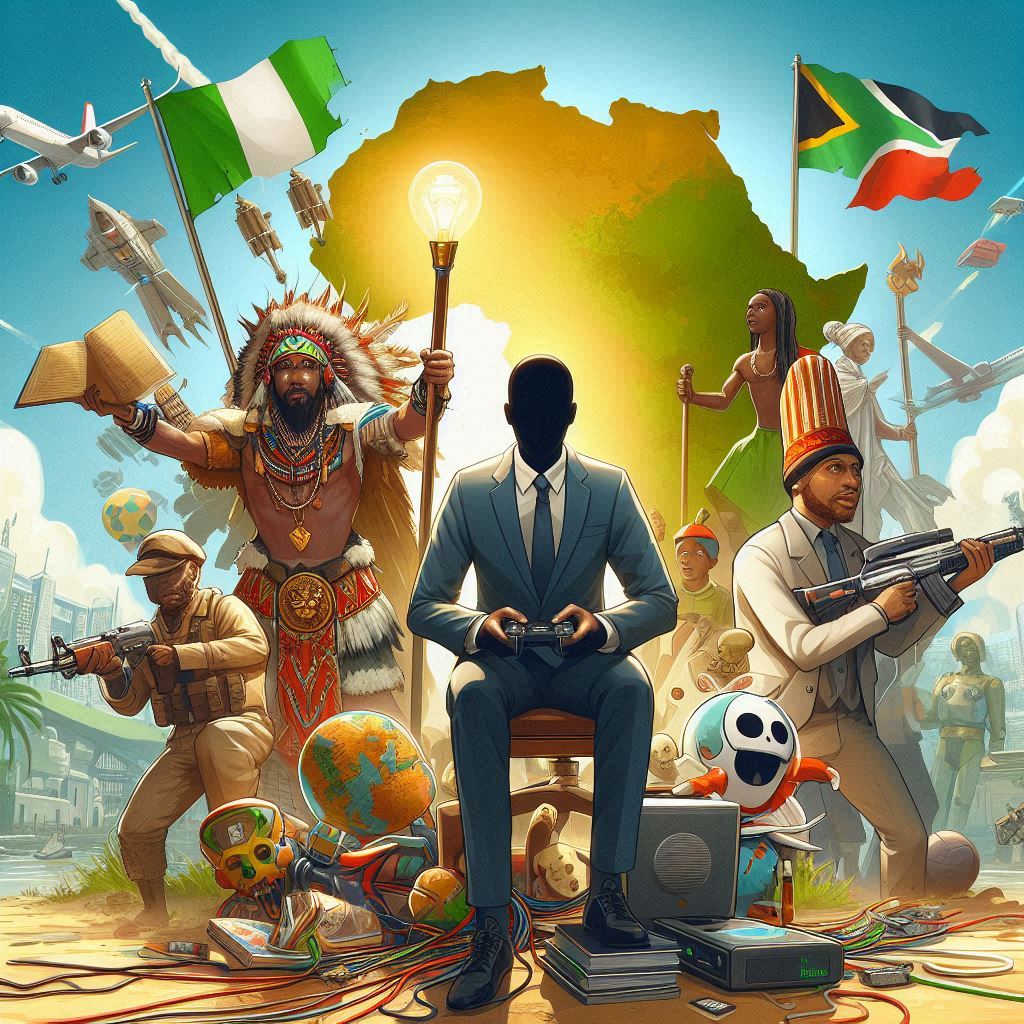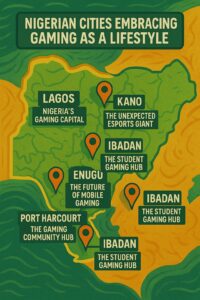Game Developers and Tournament Organisers in Africa: A Perfect Partnership

The African continent is known and renowned for its rich cultural heritage, diverse landscapes, vast abundance of resources, and most recently, as an emerging player in the global gaming and esports industry. Such growth, one may argue, is driven by the partnership between game developers and tournament organisers which is a key collaboration and relationship in the development of any gaming ecosystem.
The focus of this article shall be on exploring the dynamics and characteristics of this partnership between game developers and tournament organisers, the challenges faced as well as the potential to act as a catalyst for growth.

Gaming & Esports in Africa:
The esports and gaming industry in Africa has seen tremendous growth in the last decade due to the fact that there has been a surge in internet penetration, the popularity of smartphones, and the rise of a youthful population who are eager to engage in interactive gaming and esports entertainment. The growth of Africa’s gaming market is a well-known fact, with reports indicating that the market is expected to reach figures of USD 1 billion in 2024.
Having briefly outlined the existence of a growing esports market in the continent of Africa, let us now look at the roles played by game developers and tournament organisers, and how they work together to further such growth.
Game Developers:
African game developers are part of the frontline of the gaming revolution in the continent, creating games that local audiences can appeal to and relate to, whilst also creating games that appeal to a global audience. These developers bring with them a unique perspective and narratives that are novel to the global gaming world, often taking inspiration from Africa’s own rich history, mythology and folktales.
The creation of games such as ‘Aurion: Legacy of Kori-Odan’ by Kiro’o Games in Cameroon and ‘Semblance’ by Nyamakop in South Africa are prime examples of African creativity in making unique games that can both resonate locally and also make waves internationally.
However, despite such potential and also demonstrative success, game developers in Africa face significant challenges due to their limited access to funding, lack of infrastructure, and scarcity of seasoned and skilled professionals in the industry.
Despite such challenges and obstacles, the passion and resilience of African game developers have resulted in the continuance of creating novel games and driving the industry forward in the continent.
Tournament Organisers:
On the other end of the partnership, we have the tournament organisers, who play a crucial role in the promotion of competitive gaming and esports across the continent. Organisers create platforms wherein professional and amateur esports players can showcase their talents and skills, competing for prizes and gaining recognition.
Notable tournament organisers such as the African eSports Championship, Index Esports, Mind Sports South Africa, African Esports Championship and the ACGL (“African Cyber Gaming League”) have been instrumental in creating and hosting major tournaments, which attract attention from both local audiences as well as international participants.
The overall rise of esports and gaming in Africa has provided a competitive outlet for gamers, creating a potential new career path for individuals and fostering a sense of community and camaraderie amongst gamers and esports lovers. Tournaments themselves not only offer an opportunity for competition, but also for networking, skill development, and exposure to a different and broader audience, and are essential for the growth of the industry.
The Symbiotic Relationship:
Now that we have described how both game developers and tournament organisers play their own crucial roles in the growth of the gaming industry, we must outline how their roles are symbiotic with one another and how they contribute together towards the development of esports.
The relationship between game developers and tournament organisers is one that is mutually beneficial. For game developers, tournaments provide a platform wherein their games are showcased, played by multiple individuals both professional and amateur, act as a hub for them to receive feedback on their games and help build and create a player base. In addition, tournaments have the potential to act as a marketing tool for game developers as a successful tournament featuring African-made games will boost visibility, driving sales and encouraging further development.
For tournament organisers, having access and availability of locally developed games in their line-up adds a unique novelty and appeal to their events, and can help attract a broader audience and players. Having locally created games fosters a sense of cultural relevance and pride among participants and spectators. Moreover, the inclusion of African-made games can help potentially attract sponsors and media attention, further elevating the status of the tournament.
Challenges and the Road Ahead:
Despite such a promising foundation, there remain several challenges to the growth and development of esports in Africa. The main challenge continues to be the access to funding, which is a roadblock for both game developers as well as tournament organisers. Many developers and organisers rely on personal savings, crowdfunding, or small grants in order to finance their projects. There is a necessity for investment in order to boost the growth of the gaming industry in Africa.
Another critical issue is the lack of infrastructure. Reliable internet connectivity, modern technology and equipment are essential for hosting in-person and online tournaments, as well as for the development of games. There is a need for improvement in the digital and physical infrastructure across the continent in order to overcome this barrier.
Finally, there is a need for overall skill development, awareness and education relating to gaming, esports, esports management and game development in order to produce more skilled professionals who specialise in the field of gaming and esports. Establishment of training programs, workshops, seminars, and educational courses are required to help build a skilled workforce that is capable of both sustaining as well as expanding the industry.
Nonetheless, despite these existing challenges, the partnership between game developers and tournament organisers in Africa remains positive, and as the industry continues to grow, there are certain key areas of focus that can further drive success, they are:
Investment and funding – Attracting investment from venture capitalists, government grants, and international partnerships will be crucial. Funding can help developers create high-quality games and help organisers to host larger, more prestigious tournaments.
- Infrastructure Development: Improving internet connectivity and access to technology will enhance the gaming experience for both developers and players. Such infrastructure would also attract global audiences and players to compete in the African continent.
- Education and Training: Establishing dedicated institutions for game development, esports management, tournament organisation and various other skills necessary in the industry and can provide the necessary skills and knowledge. Partnerships with international organizations can bring in such expertise and resources.
- Community Focus: Fostering a strong gaming community through social media engagement, forums, and local events can create a supportive environment for gamers and developers. Community engagement can drive more local interest and participation in both game development and esports in general.
- Cultural Representation: Encouraging developers to incorporate African culture, stories, and characters into their games can create a unique niche in the global market. This cultural representation can attract a diverse audience and promote Africa’s rich heritage on a worldwide scale.
- Collaboration: Building networks and collaborations with international gaming companies and organisations can open new avenues for growth. Knowledge exchange and partnerships can accelerate the development of the African gaming industry.
- Conclusion:
- The mutually beneficial relationship between game developers and tournament organisers in Africa is one of the major driving forces behind the continent’s emerging gaming industry. Despite the challenges outlined herein, the resilience, creativity and passion showcased by African developers and organisers are paving the way for a vibrant esports ecosystem.
- With continued investment, infrastructural development, community engagement, education, and collaboration with other organisations, Africa has the potential to become a significant player in the global esports landscape.
- The development of such a partnership between game developers and tournament organisers, as well as the growth of the industry, is not only beneficial from an esports perspective but can also create opportunities for economic growth, cultural expression and technological innovation across various fields in the continent.
by Swagath Chanila Ramachandra
Junior Associate Parmars




